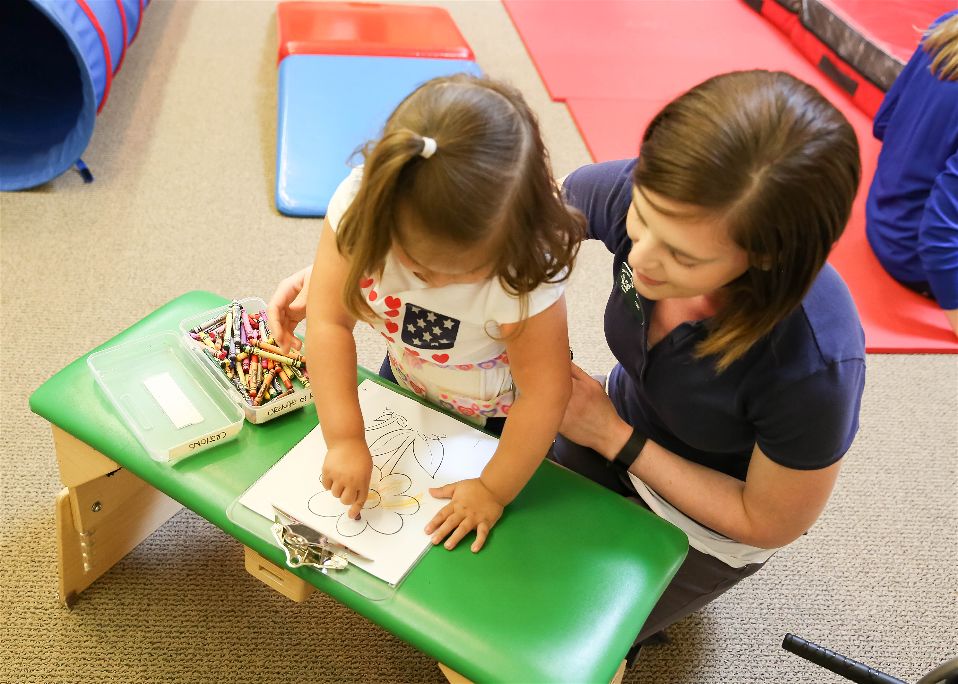
Image Source: Google
Children with special needs often require extra support to navigate their daily lives and reach their full potential. Occupational pediatric therapy plays a crucial role in providing this support by addressing various developmental challenges and helping kids build essential skills. In this article, we will explore the significance of occupational pediatric therapy in supporting children with special needs and how it can make a positive impact on their lives.
The Importance of Occupational Pediatric Therapy
Occupational pediatric therapy focuses on helping children develop the skills they need to participate in daily activities and improve their quality of life. For children with special needs, this type of therapy can be particularly beneficial as it targets specific challenges and provides tailored interventions to address them. Refer Link: https://www.benchmarkpediatrics.com/.
Here are some key reasons why occupational pediatric therapy is important:
Addressing Developmental Delays
- Occupational therapists are trained to identify and address developmental delays in children, helping them catch up to their peers and reach important milestones.
- By focusing on areas like fine motor skills, sensory processing, and self-care tasks, occupational therapy can support children in overcoming challenges that may be holding them back.
Promoting Independence
- Occupational therapy aims to promote independence in children by teaching them the skills they need to complete tasks on their own.
- By empowering children to be more self-sufficient, occupational therapy can enhance their confidence and self-esteem.
Improving Quality of Life
- By addressing children's unique needs and challenges, occupational therapy can significantly improve their quality of life and overall well-being.
- Therapists work closely with children and their families to create individualized treatment plans that focus on enhancing specific skills and abilities.
How Occupational Pediatric Therapy Supports Children with Special Needs
Occupational pediatric therapy uses a variety of strategies and interventions to support children with special needs and help them achieve their goals. Here are some ways in which occupational therapy can make a positive impact:
Sensory Integration
- Many children with special needs struggle with sensory processing issues, making it challenging for them to effectively process and respond to sensory information.
- Occupational therapists use sensory integration techniques to help children regulate their responses to sensory stimuli and improve their ability to engage in daily activities.
Fine Motor Skills Development
- Occupational therapy focuses on improving children's fine motor skills, such as grasping objects, writing, and using utensils.
- Therapists use activities and exercises to strengthen hand-eye coordination, finger dexterity, and hand strength, enabling children to perform tasks that require precise movements.
Self-Care Training
- Occupational therapists help children develop important self-care skills, such as dressing, feeding, and grooming themselves.
- By teaching children how to independently complete these tasks, occupational therapy fosters a sense of autonomy and self-reliance.
Collaborating with Families and Caregivers
Effective occupational pediatric therapy involves collaboration between therapists, families, caregivers, and other professionals involved in a child's care. Working together ensures that the child receives comprehensive support that addresses their unique needs and goals. Here are some ways in which therapists collaborate with families and caregivers:
Creating Individualized Treatment Plans
- Therapists work with families to create personalized treatment plans that outline specific goals, interventions, and strategies for supporting the child.
- By involving families in the treatment planning process, therapists ensure that interventions are aligned with the child's needs and family routines.
Providing Education and Resources
- Therapists offer families valuable education and resources to help them better understand their child's condition and how they can support their child's progress at home.
- By equipping families with the knowledge and tools they need, therapists empower them to play an active role in their child's therapy and development.
Offering Emotional Support
- Occupational therapists provide emotional support to families and caregivers, helping them navigate the challenges they may face while caring for a child with special needs.
- By offering guidance and reassurance, therapists help families build resilience and cope effectively with the demands of caring for a child with special needs.
Conclusion
Occupational pediatric therapy plays a vital role in supporting children with special needs and helping them thrive in various aspects of their lives. By addressing developmental challenges, promoting independence, and improving quality of life, occupational therapy empowers children to reach their full potential and lead fulfilling lives. Collaborating with families and caregivers further enhances the effectiveness of therapy, ensuring that children receive holistic support that meets their individual needs. With the help of occupational pediatric therapy, children with special needs can overcome obstacles, develop essential skills, and flourish in all areas of their lives.